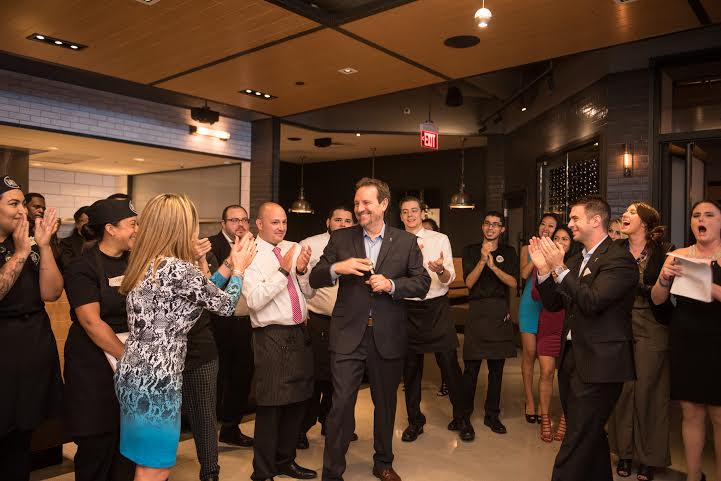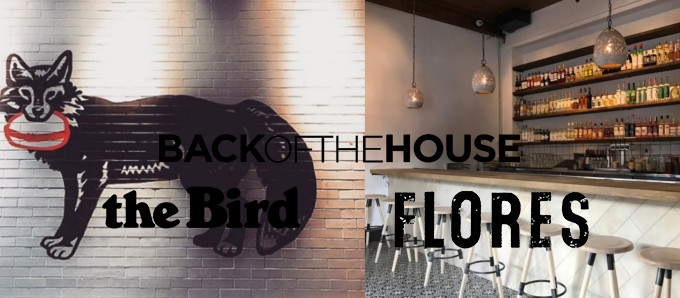 The National Restaurant Association praised bipartisan legislation introduced today that would clarify the depreciation rule around business improvements known as “qualified improvement property,” or QIP. Due to a drafting error in the Tax Cuts and Jobs Act of 2017, the period over which restaurants can expense facility improvements such as interior renovations and energy efficiency upgrades was increased from 15-years to 39-years. Due to this error, restaurants are also denied 100 percent bonus depreciation, which would have allowed immediate and full expensing of these investments from 2018-2022.
The National Restaurant Association praised bipartisan legislation introduced today that would clarify the depreciation rule around business improvements known as “qualified improvement property,” or QIP. Due to a drafting error in the Tax Cuts and Jobs Act of 2017, the period over which restaurants can expense facility improvements such as interior renovations and energy efficiency upgrades was increased from 15-years to 39-years. Due to this error, restaurants are also denied 100 percent bonus depreciation, which would have allowed immediate and full expensing of these investments from 2018-2022.
The bill, sponsored by U.S. Representatives Jimmy Panetta (D-CA) and Jackie Walorski (R-IN), is titled the Restoring Investment in Improvements Act and has been referred to the House Ways and Means Committee. The House bill mirrors bipartisan legislation introduced earlier this month by Senators Pat Toomey (R-PA) and Doug Jones (D-AL). The Senate bill is currently under consideration in the Senate Finance Committee.
“The previous 15-year depreciation period for restaurant improvements was the result of thoughtful, bipartisan agreement between both chambers of Congress. This reasonable time-frame afforded restaurants the ability to invest in their properties and enhance the experience for both customers and employees,” said Dan Roehl, Vice President of Federal Government Relations at the National Restaurant Association. “We appreciate the leadership and proactive approach of this bipartisan group of legislators. Restoring the tax treatment of ‘qualified improvement property’ will benefit employees, restaurant goers, manufacturers, and local construction workers across the country.”
“The loss of immediate expensing has hurt many of our family-owned small businesses that are critical to the success of our Central Coast economies and communities,” said Congressman Panetta. “The Restoring Investments in Improvements Act fixes that problem, known as the ‘retail glitch,’ by restoring the 15-year schedule for Qualified Improvement Property (QIP). Our bill will allow restaurants, retailers, and other businesses to make the improvements they need to keep their stores competitive and safe and plan for the future.”
This unintended change is tying up capital and stalling small businesses, directly impacting restaurant employees and harming the customer experience.
“Operating on thin margins, small restaurants often do not have the cash on hand to upgrade and modernize our facilities and equipment. The 15-year QIP depreciation schedule helped us increase investments in our businesses, while continuing to support our staff,” said Randy Venard, Manager at Esteban Restaurant in Monterey, CA. “We need to get back to that policy. I am thankful for Congressman Jimmy Panetta’s leadership toward fixing this, and applaud his steadfast commitment to local business.”
Ted Balestreri, Chairman and CEO of The Sardine Factory Restaurant agreed: “We are excited to see Congressman Jimmy Panetta and his colleagues fighting for restaurant owners in California and across the country. A permanent correction restoring the appropriate tax treatment of our improvements will allow our restaurant operators, small and large, to support their employees and expand their businesses. This legislation will benefit restaurants and local economies throughout the country.”
Additional sponsors of the House legislation include Reps. Steven Horsford (D-NV), Mike Kelly (R-PA), Terri Sewell (D-AL), George Holding (R-NC), Susie Lee (D-NV), Andy Barr (R-KY), Joyce Beatty (D-OH), David McKinley (R-WV), Dina Titus (D-NV), Mark Amodei (R-NV), Lou Correa (D-CA), and Kenny Marchant (R-TX).








